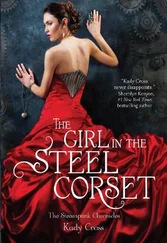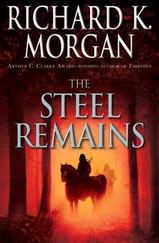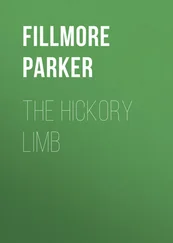K Parker - Colours in the Steel
Здесь есть возможность читать онлайн «K Parker - Colours in the Steel» весь текст электронной книги совершенно бесплатно (целиком полную версию без сокращений). В некоторых случаях можно слушать аудио, скачать через торрент в формате fb2 и присутствует краткое содержание. Жанр: Фэнтези, на английском языке. Описание произведения, (предисловие) а так же отзывы посетителей доступны на портале библиотеки ЛибКат.
- Название:Colours in the Steel
- Автор:
- Жанр:
- Год:неизвестен
- ISBN:нет данных
- Рейтинг книги:4 / 5. Голосов: 1
-
Избранное:Добавить в избранное
- Отзывы:
-
Ваша оценка:
- 80
- 1
- 2
- 3
- 4
- 5
Colours in the Steel: краткое содержание, описание и аннотация
Предлагаем к чтению аннотацию, описание, краткое содержание или предисловие (зависит от того, что написал сам автор книги «Colours in the Steel»). Если вы не нашли необходимую информацию о книге — напишите в комментариях, мы постараемся отыскать её.
Colours in the Steel — читать онлайн бесплатно полную книгу (весь текст) целиком
Ниже представлен текст книги, разбитый по страницам. Система сохранения места последней прочитанной страницы, позволяет с удобством читать онлайн бесплатно книгу «Colours in the Steel», без необходимости каждый раз заново искать на чём Вы остановились. Поставьте закладку, и сможете в любой момент перейти на страницу, на которой закончили чтение.
Интервал:
Закладка:
Loredan grunted. ‘Tell ’em we’ll sue,’ he said. Athli sniggered; professional debts, for example advocates’ fees, were a personal action, fought between the litigants themselves with no legal assistance allowed. In practice, however, advocates with a reputation of suing for their fees tended to find work hard to come by. ‘You’ll manage,’ he went on. ‘Not a bad day for you, with the sword money.’
Athli shrugged. Her ten per cent would be a tidy sum, but she’d never admit to being pleased. ‘And every penny of it hard-earned,’ she said. ‘Drink up. We’re meeting the charcoal people in an hour.’
Loredan groaned. ‘Have I got to?’ he said. ‘Can’t you say I’m still recovering or something?’
‘That’d sound good. I’ve had to sweat blood persuading them you’re not a doddering old ruin who needs help going to the privy. And for pity’s sake don’t limp. You look about a hundred and six as it is.’
Defiantly, Loredan refilled his cup. ‘Where am I going to get another Guelan from?’ he asked gloomily. ‘Of all the bastard things to happen.’
Athli frowned at him. ‘Next thing you know you’ll be getting superstitious,’ she said. ‘Which is a dangerous hobby for a man in your line of work.’
Loredan growled. ‘Proper tools for a proper job,’ he replied. ‘Nothing superstitious about that. And I think it’s about time tools and equipment came off the gross. Other clerks do it,’ he added defensively, before Athli had a chance to speak. ‘They accept that it’s an essential expense of the business.’
‘No chance.’
‘Athli, it’s my life …’ He stopped, painfully aware that he’d broken the rules. Between advocate and clerk, the possibility of death was never recognised. He slumped forwards a little, ashamed of himself. ‘When did you say we’re meeting the charcoal people?’
Athli was looking at him. She’d been doing it a lot recently. Another unbreakable rule was that clerks didn’t worry about advocates. They found them work, the best quality they could get; the fact that too high a class of work could get a man killed quicker than a lightning strike was strictly outside the terms of the relationship. ‘It’s all right,’ she said. ‘I’ll say you had to go on to a victory party.’
‘With the Dromosil brothers? Do me a favour.’ He finished his drink and turned the cup over. ‘I’d better come with you,’ he sighed. ‘Can’t really trust you to handle difficult clients on your own. And then ,’ he added ferociously, ‘we’ll go out and get drunk. Agreed?’
‘After an hour with the charcoal people,’ Athli replied gravely, ‘agreed.’
‘This Principle,’ said the Patriarch gravely, ‘which of course we do not name, provides the power that makes these things possible. Never forget how limited it is, or how little it can actually do.’
He paused and looked round the hall at the packed benches. Five hundred eager young students, every one of whom had no doubt sworn a childhood oath to be a magician when he grew up. Alexius was a cynical man by nature, and achieving the Patriarchate had ground away what little idealism he had left, but even he admitted that he had one serious – even sacred – responsibility to each year’s intake of novices. He must make them understand, as soon as possible, that they were not going to be taught how to be wizards.
‘Fundamentally,’ he continued, ‘the Principle can be used as a shield; and, to a much lesser extent, as a sword. That is all; defence and offence. Its virtues cannot heal the sick or raise the dead, change lead into gold, make a man invisible or attractive to women. It cannot make anything, or change anything already made. It can deflect curses, and it can curse; and even these things are largely incidental to the true purpose for which the Principle exists. The power is a by-product, as leather, bonemeal and glue are by-products of pig-breeding.’
As he’d intended, the homely image caused a mild ripple of disgust among the members of his high-minded young audience. This wasn’t the way they expected the Patriarch to talk. They had come here to be let in on a magnificent secret, the best and most profitable guild mystery of them all. With any luck, there would be twenty or so fewer ardent young faces gazing up at him by this time tomorrow, as the younger sons who wanted to learn how to turn their brothers into frogs, and the merchants’ sons who’d been sent to learn how to raise favourable winds and summon genies for the purpose of bulk-freight carriage, packed their bags and went home again. If he did his job properly, he’d be rid of half of these young fools before the term ended.
‘Tomorrow,’ he said, ‘I will explain to you the four great assumptions on which the Principle is founded. Once you have grasped these – if you manage to grasp them, which is by no means guaranteed – you will be in a position to decide which of the six aspects of the Principle to study, and we will then be able to allocate you to appropriate classes and tutors. May I also remind those of you who still have fees to pay that you cannot be allocated until all sums due have been received. You are dismissed.’
So much for the education of the young. Back in his own cell, a square stone box with a plank bed, a massive oak book box and the most dazzling mosaic ceiling in the city, he shrugged off his robes of office and his ridiculous purple boots, sat on the edge of the bed and patiently struggled with flint and tinder until his lamp reluctantly gave him some light.
Directly below his cell they were setting up the evening meal in the refectory. Fairly soon, the hall steward would knock on his door, asking permission to untie the knot that anchored the great chandelier that hung over the high table, so that it could be lowered and filled with the evening’s candles. The Patriarch couldn’t help resenting the intrusion, even though it was part of the daily ritual; the noise of the evening meal disturbed his reading, and scarcely a day passed when he didn’t stub his toe on the damned anchor-post as he pottered about in the gloom of his cell.
He had insisted on a room with no windows; lamplight, reflected in the thousands of gilded tesserae that made up the legendary mosaics, was good enough for a man to read by, provided that he leant close to the flame and held the page a few inches from his nose. Alexius knew that he was fatally prone to distraction. If he had a window, he’d look out of it instead of reading his book. If there were tapestry hangings or frescos, he’d sit gazing at them instead of applying his mind to the dense arguments of the Fathers. And if he went down to dinner in the refectory, instead of making do with a loaf of coarse bread, a jug of water and an apple, he’d do no further work that day, or the morning of the next.
In consequence, he was held to be a great ascetic and given honour accordingly. He was – a good joke, this – probably the most deeply respected Patriarch the city had known in a hundred years. Not bad for a man who moved his lips when he read, and made no effort to conceal the fact. And if it took him twice as long as his colleagues to master each new development and hypothesis in the orthodoxy, at least he did master them. Lazier, more gifted men who didn’t bother to read the actual text, relying instead on someone else’s summary, made mistakes and could be confounded by a painfully learnt quotation.
Some of them even liked him. He had no idea why.
The source of tribulation he had set himself to read this evening was a new discourse on the nature of belief; a short monograph apparently flung together in an idle moment by the young Archimandrite of one of the city colleges, a man who had more intuitive understanding of the Principle in his toenail clippings than the Patriarch had in his whole body, but who devoted most of his waking hours and a considerable proportion of the income of his House to the trotting races. In his treatise, the dashing young sportsman proposed that belief acted as a focus for the Principle in the way that a prism of crystal or glass can concentrate the light of the sun. The Principle, he argued, was as universal as light and as diffuse. Only when filtered through the willing mind could it become strong enough to illuminate subterranean darkness or burn a hole.
Читать дальшеИнтервал:
Закладка:
Похожие книги на «Colours in the Steel»
Представляем Вашему вниманию похожие книги на «Colours in the Steel» списком для выбора. Мы отобрали схожую по названию и смыслу литературу в надежде предоставить читателям больше вариантов отыскать новые, интересные, ещё непрочитанные произведения.
Обсуждение, отзывы о книге «Colours in the Steel» и просто собственные мнения читателей. Оставьте ваши комментарии, напишите, что Вы думаете о произведении, его смысле или главных героях. Укажите что конкретно понравилось, а что нет, и почему Вы так считаете.












